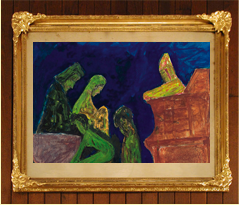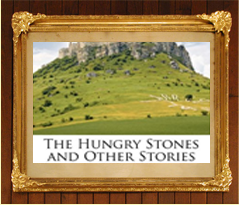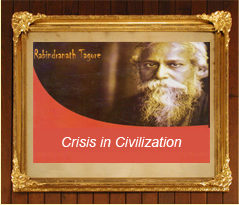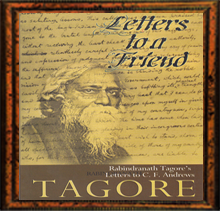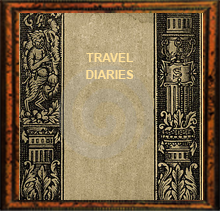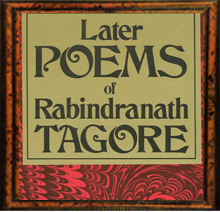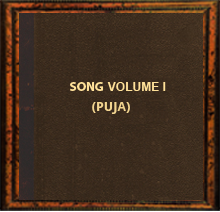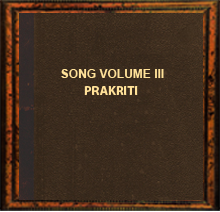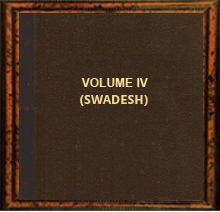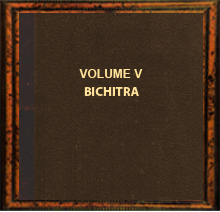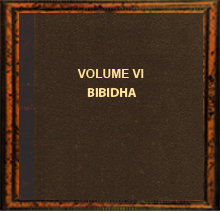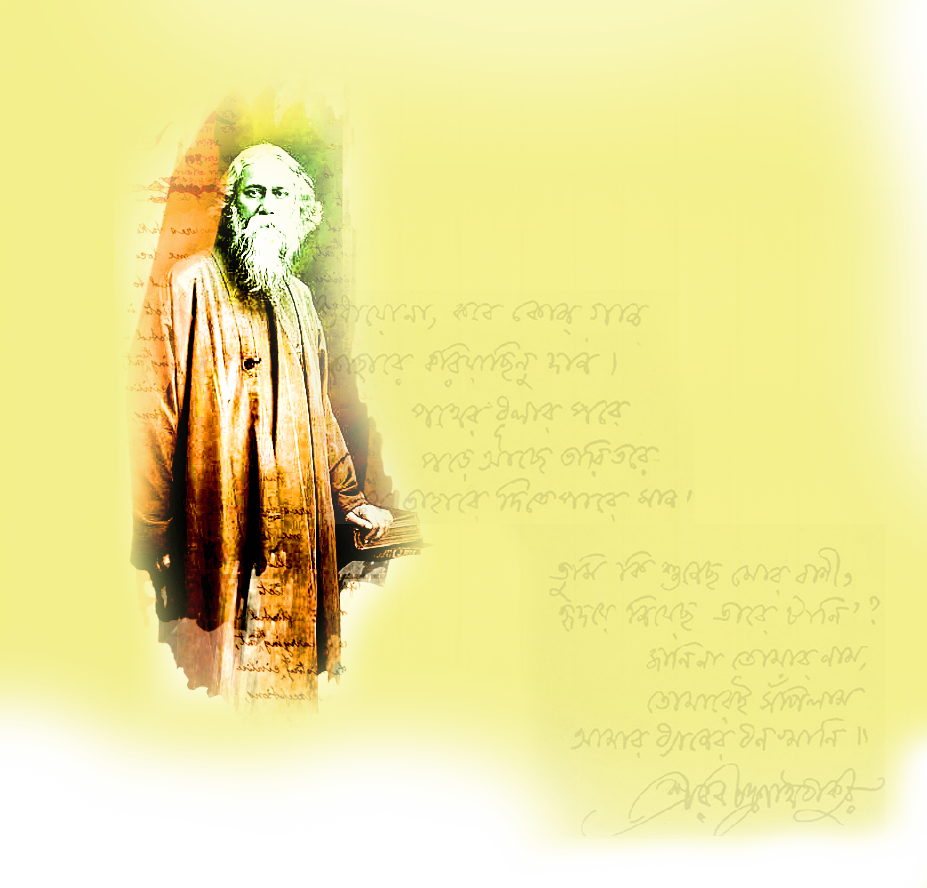

Volume III (Nature)
A Note to Readers:
Great family tragedies befell Rabindranath between 1902 and 1907, which however could not diminish his genius of writing spontaneous world class poems and songs of great diversity and depth and other literary creations of the most supreme order, nor lessen the fervor of his grand participation in copious national and international commitments and undertakings, everyday of his most illustrious life. The poet lost his wife in 1903 when he was forty two, and lost three of his five beautiful children after his wife’s death, yet he was supremely creative during all these years. The only silver lining in these darkest hours, heart breaking events, was that the poet was made a Nobel Literature laureate in 1913 and the rest was history.
It has been alleged that Rabindranath was a boring repetitive poet in certain quarters. To this we will add the observations of many 19th century great men and women of letters, most notably Pearl S Buck, US Nobel Literature laureate who observed in her article “A World Poet” –
“Tagore stands to us for pure beauty, for the universal. His poetry, his poetic prose reached deep and far because he spoke to us of mind and soul leading the human spirit to God. In a very real sense he was the world poet. His words - the tools which he used – are sensuous but not sensual comprehending not only love of God and relationship between man and God but human love. The profound sense of beauty pervades Tagore’s work and ennobles that and makes it understandable to every human heart. The world needs such poets.”
Johan Bojer of Norway reminisced about Rabindranath’s poetry, love and religion:
“His poetry belongs to no school-the flowers of Bengal were created by the sun and rain.
His love for his fellowmen is not the love of the Samaritan but the Song of Songs. He knows that just as dew drop in the grass may mirror the Heavens, so the human mind may reflect God.
His religion knows neither hope nor fear. It dwells in the calm of the Spiritual Universe which nothing but the human heart can comprehend.”
The French universalist and Nobel Literature laureate Romain Rolland summed up:
“He has been for us the living symbol of the spirit of Light and Harmony, the great free bird which soars in the midst of tempests, the song of Eternity which the Ariel makes to vibrate on his golden harp, above the sea of unloosened passions.
In tragic hours, Tagore is the clear-eyed and undaunted watchman of his own peoples and of the world.
All that we are and all that have been created have had their roots or their branches bathed in the great
Ganges of Poetry and Love.”
If we take into consideration that Rabindranath composed about 2300 songs and equal numbers of poems-some of the themes, words and phrases will seem familiar. One of the greatest scriptures, the Bible has many repetitions, but do they lessen its value? But speakers of or singers in Bengali language will know that apart from his style, Rabindranath has managed to leave a different emotion or appeal to listeners in most of his songs. His Toppa genre of songs are a class by themselves. These semi-classical Tagore songs cannot be sung by singers who did not have a training in Indian classical music. He crafted Folk, Kirtan, Bhatiyali and Baul styles of singing in his songs. He experimented with north and south Indian Ragas and created new Taal or beats after making an exhaustive use of the existing ones. After his first return from England, he also composed in Western style music, with Bengali lyrics and there are a bunch of his songs available in piano notations.
His PUJA (Worship) and PREM (Amore) songs, his own groupings, are at times so similar that we cannot always differentiate which one is in which category. For example, “Now I earned your company” has been classified in PUJA which can be a PREM song as well. Then again, “O beggar, you have made me a beggar” has been classified in PREM, which distinctly reminds of a song from Gitanjali, can be very well classified in PUJA. Such instances abound. Some of his PRAKRITI (Seasonal) songs could be PREM (love) songs as well for they speak of union with or separation from the beloved. As for the charge that Rabindranath is a boring poet is untenable. The allegation that he was a hermit, mystic only is also false. This reminds us of the parable of the 19th century Bengali saint Sri Ramakrishna. “An elephant passed by a group of blind people. One got to touch its trunk and said it was the trunk of a tree. Another touched one foot and said it was a pillar. A third blind man similarly missed the mark by a mile. Nobody was near the truth, nobody knew it was an elephant.”
Another phenomenon must be discussed while we are into Tagore songs, his song lyrics. If we climb the Mount Everest that is the GITABITAN or ORCHARD OF SONGS, we see such skyline, such cluster of stars and galaxies (figuratively), that common people are unaware. The appeal of Tagore songs is not in melodies alone, his lyrics are a mature distillation from the scriptures and literature of all major world religions and cultures, in particular the Upanishads and Vedanta System of Philosophy. National Professor, Acharya Suniti Kumar Chattopadhyay thought Rabindranath was the “Supreme Commander Wordsmith of the Universe. The muse of the language and arts had shown all her beauty to the poet even as a devoted wife to her husband.”
As Rabindranath meditated on a transcendental godhead or Brahman, many of his paeans are psalms that can be sung in a church, synagogue or mosque, in a prejudice and fanaticism free world. A UK university professor wrote, “Up to 400 Western composers borrowed from Rabindranath with or without acknowledgement.” Literature Nobel laureates of the twentieth century were profoundly influenced by Rabindranath Tagore that the search engines are not aware of, and in our lifetime, at least one famous published poet copied a Tagore poem in parts and used it as own composition in a very important public event, without batting an eye.
To this we shall add the testimony of Father Pierre Fallon, a Member of the Society of Jesus from Belgium who was educated in Louvain University, passed MA in Bengali at Calcutta University and taught in St. Xavier’s College and Jadavpur University in Calcutta.
“But a misunderstanding must be dissipated: Tagore’s reputation as a predominantly ‘mystic’ poet should be exorcised. Tagore was infinitely versatile, and to give complete idea of his range one must bring in the most varied types of lyric poetry. There is in his poetry the joie de vive of the early Musset and the sensuousness of a Swinburne, the ethereal dreaminess of the author of ‘Namouna’, the meditative and intimate moods of Lamartine, the flights of romantic fancy of a Shelley, and the verbal magic of a Hugo, the Wordsworthian communion with Nature and the perfect craftsmanship of Tennyson in his medieval ballads. More aptly perhaps, his poetry can be compared with the ever changing art of Goethe with its universal creative range. The West knows Tagore only as author of Gitanjali and believes this to be his greatest work: it is great indeed but representative only of one aspect of Tagore’s poetical creativeness. Till the other aspects are revealed to them, Western readers will not know the real greatness of Rabindranath and this would be a major loss to them.”
We are gradually and modestly trying to clear the misconceptions through the pages of this web site.
The explicit descriptions of female beauty and corpus features of earliest Sanskrit poets did not find their echo in Rabindranath. In Urvashi, he only imagined the heavenly nymph was in her birthday suit in one stanza of the poem. We do not expect Rabindranath to go beyond that. He created more than 100 songs on Bengal’s Rainy Season alone. A medley of seasonal flowers, forest foliage, abounding greenery, incessant rains, wind, cloud and sky, interactions of these features upon one another and varying emotions of human heart were his main ingredients. Similarly he composed about a hundred songs on the Spring season. The flora, fauna and shrubbery have changed this time. In summer and autumn different groups of blossoms and verdure fill the bouquet of his songs. The longing of the separated couples is very well demonstrated in the rainy season or in the south wind of spring which kindles feelings of desire. There he was traditional with the Sanskrit poets or poets like Vidyapati, who just preceded him and lamented, “The month is Bhaadra (July-August), full of monsoon rains and my living quarter is empty.” In the “Twelve Monthly Ordeal of Fullara”, the wife of a game hunter, Kabikankan (Poet laureate) Mukunda Chakravarty mused: “In the honey laden Spring, the south wind is amorously gentle. Bees are drunk with nectar and damsels are filled with burning desire.”
Rabindranath’s songs with diverse melodies, beats and celestial lyrics break the monotony many times over. There is pathos, but there is also excitement. If he sounds depressed, next moment he lifts up. The poet had been correct in predicting that if all else of his creations perish, his GITABITAN or the Orchard of Songs will survive the test of time. This is no less than Palgrave’s Golden Treasury of Poems. This is “The lunatic, the lover and the poet are of imagination all compact.” Rabindranath has never disappointed in his songs, rather he uplifted a nation, paying attention to the endorsements of Mahatma Gandhi and Aung San Suu Kyi in the film.
Translations, concepts and interpretations are the responsibility of the creator of this web site. They are by no means the last word in translation and meant to let the non-Bengali speaking enthusiasts have a glimpse into the world of the poet – fraught with purity, rich imagination and supreme control of words. Bengali alliterations cannot be easily translated or emulated in English, but we tried to retain similes, metaphors and other rhetoric as much as the concepts will allow. We tried not to overdo or unpardonably distort the intrinsic thought.
Other poets of Bengal on Rabindranath:
Satyen Datta:
The poet of Bengal is singing in the world the paean of an epic life.
The life and livelihood of a Bengali are not inane, useless.
We look to the future with a heart filled with hope and joy.
Bengalis will do God’s bidding through His grace.
সত্যেন দত্ত :
বাঙ্গালীর কবি গাহিছে জগতে মহাজীবনের গান।
বিফল নহে এ বাঙ্গালী জীবন বিফল নহে এ প্রাণ।
ভবিষ্যতের পানে মোরা চাই আশাভরা আহ্লাদে।
বিধাতার কাজ সাধিবে বাঙ্গালী ধাতার আশীর্বাদে।
Atulprasad Sen:
Rabi played on your lyre and earned a laurel from the world.
The whole world makes a pilgrimage mother Bengal, at your feet.
(Poet APS is implying Vishwa Bharati at Shantiniketan, international university founded by Rabindranath to be a place of pilgrimage for the world).
অতুলপ্রসাদ সেন:
বাজিয়ে রবি তোমার বীণে আনলো মালা জগত জিনে।
তোমার চরণ তীর্থে মাগো জগৎ করে যাওয়া আসা।
কামিনী রায় :
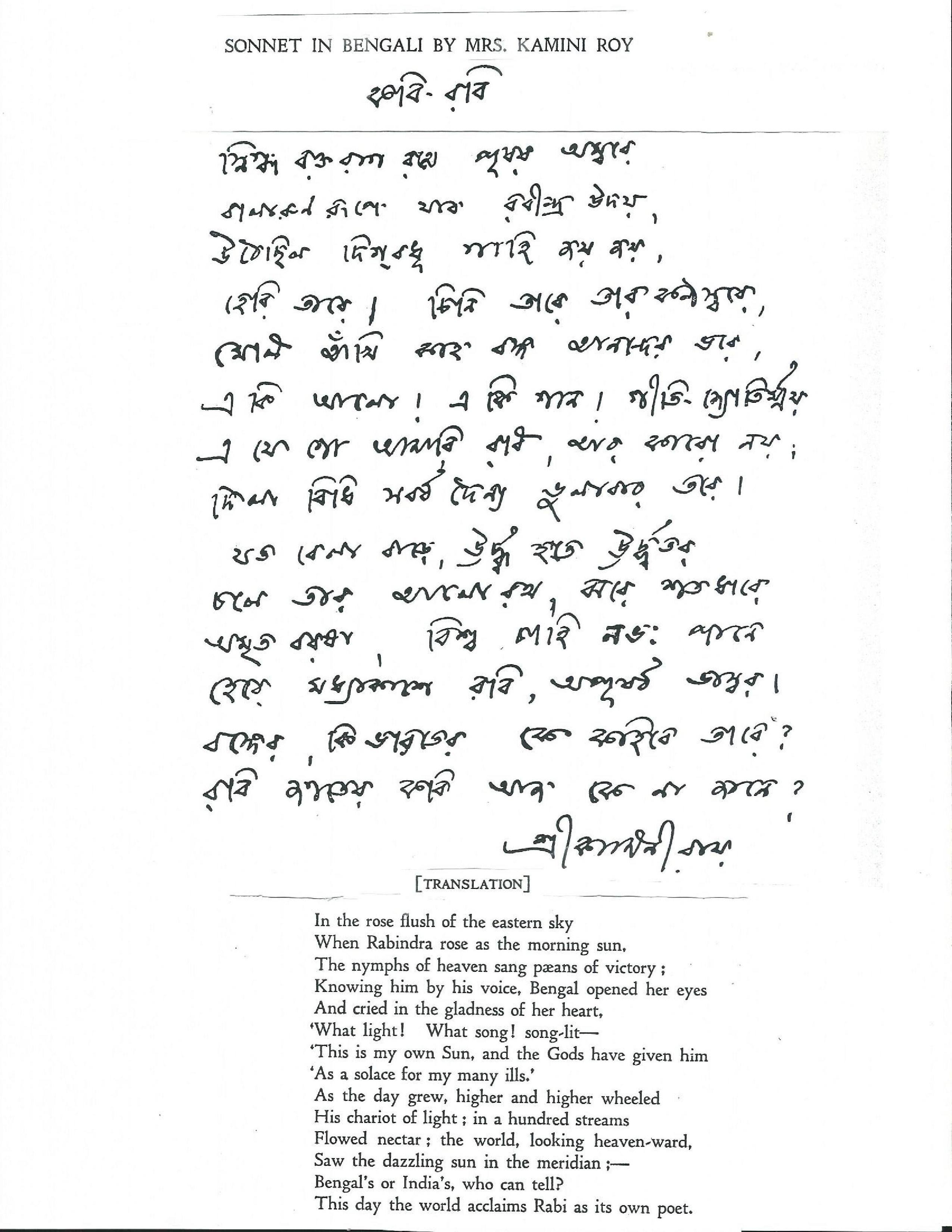
NOTE: Usually flowers in India are very fragrant. Names of hard wood trees and flowers abound in all literatures, epics and classics of India. Names start in upper case letter.
Legend: Su-Summer, M-Monsoon, A-Autumn F-Fall, W-Winter, S-Spring.
Flowers: Champa, Malati, Shiris, Bel, Beli or Belika, Rose-spring (Falgun, Chaitra) and summer (Baishakh, Jyoishtha – May, June)
Kadamba (Kadam) or Nipa, Ketaki (Keya), Jasmine (Juthi), Malati (Madhumalati) or honeysuckle, Bakul, Rose - Rainy season (Aashardh and Shrabon - July and August)
Shefali or Shiuli, Kunda, Kash, Rose – Autumn (Bhadra, Aashwin – September, October)
No flowers in winter (Paush and Magh) – Bare, austere nature is compared to an ascetic
Hard wood trees Shaal, Piyaal, and Tamaal. Names start in upper case.
Rain is pouring in torrents and I am home alone all day. (Utal dhaara baadol jhore…)
Wet wind wafts hard and stirs up the river to flow frenzied.
The sky covers up in ink black clouds and Tamal groves darken.
Come on beloved at the end of day, how may I offer you care?
May I wipe you off with my garment, dry wet feet with hair?
As the stormy night gets intense, shall I light a love beacon?
And lay my heart down, for you to use as a stepping stone. (Abridged) M
Wayfarer, why the sudden restlessness in your mien! (Keno paantho a chancholota…)
Did you intercept a message from the sky wide open?
Your eyes sad in separation and pococurante, search whom?
Tresses lump on forehead, the lady lightning in drowsiness loom.
In the Kadamba orchard strewn with stamen, in the gentle murmur of
Breeze filled with gaiety, resounding is
The poignant tale of the earth happily soaked in rain, in separation anxiety.
Patience is urged, patience urged, for the bridal bouquet is not yet smudged,
Nor the nuptial garland lacks luster.
Beautiful jasmine and honeysuckle with sweet scent offer you their prayer. M
O Santali young man, with the bassoon! ( Ogo saontali chhele….)
Are you verily the harbinger of the verdant, fresh monsoon?
Across the paddy fields, by the shadow of the Shaal wood,
You have flung open your heart to the distant tune of your flute.
The blue of your body is lent by the eastern horizon,
The yellow attire bears a crimson impression.
Unknown to me, you adorned my door front with a fresh bloomed Keya flower,
My song, as if in a flight with a flock of swans, is your company at this rainy hour.
The Tamal grove astir in the storm, you and I are sheltered beneath it together,
Casting my own shadow under the clouds, I am a solitary wayfarer. M
4. Rocks, O rocks, in my heart’s sky, an exquisite Champak rocks, (Dolay premer dolanchanpa…)
It is dabbed with grace from the light that the vernal moon emanates.
In the shadow of a dark night, beyond the meditation sans a hymn,
It was concealed in a leafy container, conceived in a rare dream.
Its hidden pollens were scattered by the southern zephyr,
The artist with the flute rejoiced in its aromatic splendor.
On its soft lively petals, the full moon sprayed golden color,
With tunes and melodies of my song, I drew it in a picture. S
5. You brought for me a bouquet of monsoon Kadamba flowers. (Baadolo dinero prothomo…)
I have for you my songs of the rainy Shravana.
Under the cloud cover and in darkness, I have them
Laid away, the first golden harvest of the field of my melodies.
Your gift today may not be renewed hereafter,
As the bower of your flower trees would go bare.
This song of mine will continue through these rainy months
And the boat will continue to return laden with gift for you,
Plying through the tumultuous waves of your oblivion. M
6. On this autumn morning, my night came to an end. (Shaarodo prate aamar raat..)
Flute, O my flute, to whom do I give you away?
You had played so many welcoming and farewell tunes,
Through spring time of merriment, dark monsoon nights.
O well, my night has come to an end….
The secret that is within the mind and beyond grasp,
I had found and revealed them in my songs.
Now the time is up and it is the setting time of the stars.
Let this end, much like the withering of the Shiuli flowers. A
7. Fallen leaves, O withered leaves, I am company all the way with you. (Jhoraa paata go aami…)
The spring with many memories of laughter and tears, is bidding adieu.
Fallen leaves, O, how you adorn yourselves in the spring's glamorous hue,
In a farewell attire anew.
You played Holi, on the dust of the earth, in the blades of grass,
In the concluding scene of the springs’ mad dash.
May you also color my scarf likewise, in the color of the fiery flame,
Let the setting sun cast its Midas glow on the last of my life’s claim. S
(Holi is the festival of colors play)
8. Asadh, with its monsoon pageantry descended today. (Bohujuger o paar hotay…)
In the jingling of showers, a poet’s rhythms are in play.
The wreaths of our union, frayed and beaten with dust,
Wind laden with water drops, bearing floral scent, now waft.
The day was when clouds amassed on the banks of Reba
On the green mountaintops, rains poured in a plethora.
Malabika’s listless glance was fixed for her lovelorn on the road,
The same fitful look returned today riding the shadow of black cloud M
9. I came to have a word, but I did not, just kept glancing. (Kichhu bolbo bolay…)
I observed you at the open window, rapt in garland weaving.
Jasmine buds on your lap, melodies you kept humming.
The sky on the whole, stared too at you, without a blink,
All of the sky kept at you staring, unblinking.
Light fell through the torn clouds, on your black tresses shining,
Misty air from nimbus clouds, gently nudge your locks to swing. M
10. In my siesta, someone kisses my eyes leading to a reverie. (Aaadheko ghume noyono…)
A jasmine garland adorns my weary shape as a soft breeze caresses it by.
The shadow of the woods is my companion, not a care in the world,
A bivouac I have created by the roadside and do not look back.
The rustling of bamboo leaves adds a ballad to the thoughts.
In the sky canvas, clouds idly play in an unknown script,
And a mirage is born in a far distant memory.
On a hot Chaitra day, a grass skirt is spread.
A vessel of fragrance is floated in the sky.
A moping pigeon chirps on a honeysuckle creeper. SU
11. Only my mind knows how exceedingly charming you are. (Koto je tumi monohoro…)
My heart is all astir with your music.
This morning clouds play with the sunlight,
My eyes are tearful as I glance at you.
The river wakes are incessantly shimmering and gleaming,
The laughter of the glade rushes the mirth from leaf to leaf.
In the sky I behold – O what it is your gaze!
The blue ambrosia showers in torrents inside my heart. SU
12. No hint of a drop of rain, the day is severely scorching. (Nai roso nai darroono…)
Play, O continue your silent and frightful game.
Let the leaves continue to fall, the garlands dry out,
In the deserted street, mirage cast its net.
Flowers have withered on the dry dust,
Let a twister send the skirt skyward.
If you would rather make life desert arid,
Let that happen, O terrible one.
You and I are alone in this difficult union. SU
13. The fiery arrow pierces the parched up heart. (Daroon aginibaanay ray…)
Sleepless is the night, day long and seared.
There is no relief.
In the dry woodland the tired pigeon sings a
Melancholy strain.
Fear not, O fear not, the sky may give a break.
In the disguise of a hailstorm, it will show up
And cool my heat singed heart. SU
14. Come ye Baisakh, come, and welcome. (Eso he Baishakh……)
With your austere breath of wind, blow the half dead away.
Let the year’s trash bundle out.
Let old charms melt away, forgotten songs in oblivion stay,
Moist tears dry far out.
Let afflictions be wiped, infirmity destroyed,
Let the earth be rendered pure in a fiery bath.
Underwhelm excesses in merriment,
Invoke the conch shell for the dooms day.
May the foggy envelop of illusion disappear. SU
15. When in midday the bird stops cooing, (Modhyo dine jobe gaan…)
O cowherd, play your flute alone.
At the far corner of the barren field’s edge,
The deity will listen, eyes closed in meditation
Mellifluous abandon enrapturing.
O cowherd, play your flute alone.
All on a sudden the sky is astir,
With the breath of a hot and thirsty separation.
At the far end of the sky the bell drum peels
To the beat of the lightning, ringing in the nor ’wester.
O cowherd, play your flute alone. SU
16. The light breeze of the Baisakh lightly caresses me (Baishakher ai vorre haoa…)
Reminding of the gaiety of her walk.
At the dream break, by the window from time to time
The Bakul garland whiff gusts past me, half asleep.
What mirth does it spread-the breeze of the Baisakh dawn?
As if it brings the touch of the flowing hair blown by wind.
As the Champak grove quivers, the resonance strikes at my
Heart, likening a rocking and murmur from another morn. SU
17. A gentle breeze caresses a spotlessly white sail. ( Amala dhabala pale legechhe…)
I have never seen, I haven’t, such an amazing rowing.
What far away treasure does the boat carry from what distant shore?
My mind drifts away.
It longs to lose everything on this side of the shore.
The boat has advanced past a trail of showers and a stormy interlude.
On the face falls the rays of the sun through the rent cloud.
O helmsman! Who prizes you and who misses you most?
My mind wanders.
To what melody will you tune your instrument today?
What song will you sing? A
18. Resplendent and white as the fresh Kunda flowers, ( Naba kunda dhabala dala …)
Immaculately clean and irradiating happiness,
Seated unwavering on her golden throne.
Adorned with the rutile rays of the rising sun,
Effulgent in the full moon’s snowy beams,
Lakshmi, the heavenly deity bestows blessings. A
19. This lotus of white light, who made it bloom? (Aaalor amala kamala khaani….)
The blue sky is awake from its slumber.
The thoughts in my mind are out on their wings,
They go the way of the same lotus of light.
The violin of the muse plays in the lotus groves,
Sweet melodies shower down under the Shiuli tree.
That makes the frolicsome wind dance around paddy saplings,
Sending ripples of murmur glade to glade. A
20. On a snow cold night, the autumn fairy concealed the lamps (Himro raatay oi gogoner…)
Of the firmament with her veil, spreading her veil.
She urged all residents to light the lamps of the
Festival of lights, light up the homes, to adorn the earth with
The row of lights.
The flower bowers are empty, cuckoos and wagtails do sing
No more, Kash shed its flowers by the river banks.
Let pathos and fatigue disappear, light the lamps of the festival,
Light the lamp O light your own lamp, let victory of light be sung.
The god are gazing at you the children of the earth,
Let the night stay awake with the lights.
Dusk has approached and the day is done,
Light the festival of lamps, conquer the darkness. F
21. The darling of my eyes, you have arrived, (Aamaar noyono vulaano elay..)
What a sight it is to my heart!
By the Shiuli plants, by its heaps of shed flowers,
Stepping your rubicund feet on dew soaked grass,
The darling of my eyes, you have arrived.
The shroud of the light and shade cover the woodlands,
Flowers look at thy face and speak friendly in your ears.
We will welcome you, please remove the veil from you face,
A few curtains of clouds, shoo them away.
A deep sound of conch pervades the quarters of the forest deity.
The sky plays its own quartet to welcome you.
Somewhere the golden ankle bells tinkle, may be in my own heart,
In all my moods, all my works, melting life out of the rock.
The darling of my eyes, you have arrived. A
22. We made the arrangement with Kash, wove the garland with Shefali. (Aamraa bendhechhi kaasher…)
We decked the tray with sheaves of the paddy sprig.
O autumn deity, appear to us in your white cloud chariot,
Come in the clean blue path, come to the forest and hills awash with
Greenery and glittering with light, with your crown adorned with
A white lotus dotted with cool dew drops.
With shed Malati flowers, the welcome mat spread on the bank of
The swollen Ganges, the swan is flying with wings spread out
Aiming to reach your feet.
May your golden harp hum sweet melodies causing merriment and a tear.
Fitfully, the touchstone shines in a corner of your hair,
Apply it to all the thoughts in your mind, so they will turn gold
And darkness disappear in light. A
23. Autumn your offering of the rubicund rays scattered (shorot tomaar arun aalor…)
And overflowed the beautiful digits in my hand.
Autumn your tresses washed up by the dew and
Your veil that covers the woodlands,
Stir up the morning to the core.
Your bracelet is etched with jewels that glitter fitful
And light up the green meadow.
The shadow of the arbor murmurs with the song,
And waves a scarf with a dance of its own,
Making the heart of the Shiuli groves restless. A
24. Hey all come running, come running, come running, (Pous toder daak diyechhe….)
For Paush has called you with her ripe harvest, hey hey hey.
The nymphs in the paddy fields are charmed by the inebriating wind,
The gold of the sunlight is spread on the soil of the earth, hey hey hey.
The firmament is pleased with the music of flute from the fields,
Who will be home today-open your door, open the door, open door.
The sheaves of the paddy are smeared with dew as the light is smilingly awakened.
The happiness of the earth is beyond measure, full to the brim, hey hey hey. W
25. O Ascetic! Why did you come down from the snow clad mountains? (hay sonnyasi himagiri….)
Kunda and Malati are seeking the favor of your appeasement.
Things stale, dreary and worn out, you have strewn them helter and skelter.
The shades in the glade are unhappy with the imminent separation,
Please be kind.
Will you deck the tray and weave garland for the demise to occur,
So you filled up repeatedly your scarf in dry leaves?
The earth is a willing partner in your riot,
Took upon its bosom the pain of destruction,
O terrible, now grace her with consort-ship as a bridegroom, be kind. W
(Holy men in India renouncing all perform austerities in the Himalayas. The poet compares an ascetic to the winter, which robs nature of all flowers and the grace and greenery of the environment).
26. To what melody my violin plays, to what new listless rhythm? (Moar binaa othe kone suray…)
My heart vibrates in unison with the heartbeat of the universe.
An animated youth approaches, end of his garment flying,
The joy of the glade reverberates with the dance of light.
In the quarters of the sky, the voiceless bell tinkles,
Twigs of the trees clap in that unheard beat.
Whose feet it is the touch of which lends words to the grass?
Wind blows in abandon, lost in forest fragrance. S
27. I look at the mount crest of sunrise, from the mount crest of the sunset. (Purbacholero pane takai…)
I play the flute for him today, who does not answer my call.
When I set out from this bank and sail toward the other bank,
The bundle of my spring songs will float away with the music.
The lane of the forest glade was painted with colored flowers
It’s trace obliterated by the detached petals of the bunch.
A fitful blast of wind brings in the memory of the familiar days,
Semi oblivious cries and laughter strike a sudden surprise to the heart.
28. My heart is blasé to the murmur of leaves (Momo antaro udaasay…)
Caused by a listless wind.
The night flooded with the moonbeams alternates
Between sleep and its absence, heady and heavy
From the scented end of a dress.
It does not allow to stay home, draws out to where?
To what distant beautiful heavenly land?
Far away in the past, by the sea of memory
A hint of cry is mixed with pain. S
29. The heart of the earth is impatient, at the advent of spring. (Bosonte aaj dhoraar chitto…)
On her bosom rocks, rocks and rocks the idol of her heart.
The abundance of joy rocks in the corners of the sky.
Even the song rocks, the song that stirs up the blue sky,
Rocks with the beats.
My enchanted eyes are sleepless.
As my heart swings, somebody else swings too.
It swung all measures of happiness, exposing secret laughter,
It also swung in its beats, verily it swung all the unplumbed sorrows. S
30. Fallen leaves, now I too am in your company. (Jhora paata go aami tomai dole…)
With much laughter and tears, Falgun is bidding you adieu,
As also my heart.
In yellow hued dress, O fallen leaves, you have attired yourself
For the last curtain call.
You played the festival of colors in the dust and shoots of grass
In the final segment, with the spring.
Color my dress too, even as yours, in the likeness of fire,
May the setting sun apply touchstone to the very last of my belongings. S


